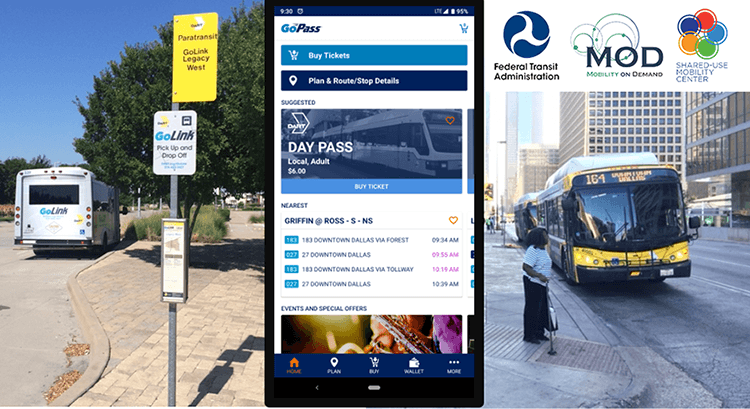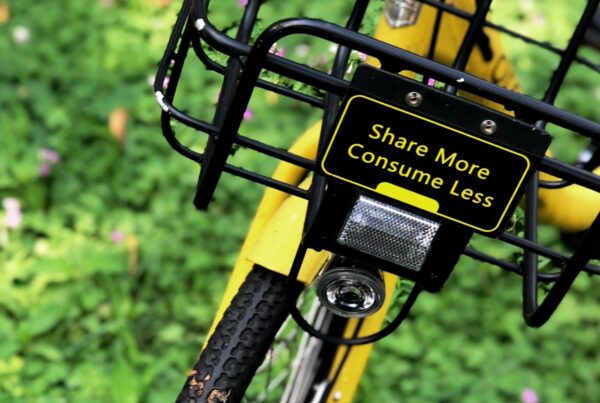Welcome to the Shared-Use Mobility Center’s weekly guide to the most impactful news, thought-provoking articles and innovative technologies that are shaping our transportation future. We believe in sharing information, just like sharing cars, bikes, and scooters, so if there’s anything additional you’d like to see, just drop us a line.
Announcements
Last chance to register for the Mobility on Demand On-Ramp workshop in Dallas, TX on November 21.
Join SUMC staff, MOD On-Ramp participant agencies, and area transportation leaders on a technical work session and field trip where you’ll experience MOD projects first-hand. Register by November 18 here.
Where is the Shared-Use Mobility Center?
Minneapolis, MN | Advancing Microtransit Projects in the Twin Cities
November 14, 2019 | 8:30 am – 10:30 am
University of Minnesota Urban Research and Outreach-Engagement Center
Join the Twin Cities Shared Mobility Collaborative, SUMC, and regional transit agencies as they give a national perspective on microtransit and present examples of current projects. Register here
Chicago, IL | Micromobility Grows Up: Lessons Learned on Scooters & Bikeshare
November 21, 2019 | Noon – 1:00 pm
UIC Urban Transportation Center
SUMC talks about the growth of micromobility and converging issues including access, impact on other modes, safety, and infrastructure. Learn more here.
SUMC in the News
The MOD Learning Center is called out in ZDNet’s article on, “How Autonomous Vehicles Could Change Car Ownership,” which covers the optimal benefits and potential drawbacks of the widespread use of the mobility innovation. Stating that the Learning Center can, “shorten the learning curve for these products and services,” it calls out the wealth of information available gathered from organizations and cities around the country. We couldn’t have said it better ourselves.
SUMC’s Open House has been moved to December 5, 2019.
Stay tuned for details!
Ridehailing/Carsharing/Carpooling
Uber and Skokie, IL are in a legal tussle over the Chicago suburb’s local ridehailing tax, a move with larger implications in the wake of Chicago Mayor Lori Lightfoot’s proposed budget plan that raises ridehailing fees from 60 cents to $1.75 per trip.
Polaris’ six-seat shuttle vehicles have become a poster-child of sorts for small-scale, on-demand rides around the US, with a few of these microtransit programs even going autonomous.
Hyundai is launching an EV carsharing service in rural Spain under the VIVe brand, starting with Kona Electric and Ioniq Electric vehicles.
Waze Carpool is coming to the Moovit app in the US, Brazil, Mexico, and Israel as part of a new pilot program, Waze’s first third-party app integration.
Partnerships and Programs
New pilot to fill first/last-mile transit gaps: St. Louis’s Metro Transit and Lyft are partnering to give passengers in 8 preselected areas rides to and from transit for $1.
Bus startup FlixBus and transit vehicle manufacturer MCI have piloted the first long-distance electric bus route in the US and want to revolutionize short-haul, intercity travel with EV mobility.
Visa is making substantial gains in contact-less fare payment for public transit, adding 100 new global partners for its Ready for Transit program.
The MTS agency in San Diego has launched an electric bus program with EV manufacturer New Flyer as a push for cleaner transportation initiatives, a first of its kind in the region.
Bikesharing and Micromobility
How can bikesharing become more efficient? Scientific American believes data-driven approaches with advanced analytics could do the trick.
EV micromobility continues to morph, this time with Bird’s introduction of a Scoot-branded EV moped service in Los Angeles that will come with a helmet and require a driver’s license to operate.
Mountain View, CA is looking to bring a dockless scooter pilot to the city with new regulations on age restrictions, sidewalk use, and where they can be parked.
Speaking of moped-sharing (it’s a thing now!) EV moped services are speeding ahead in Austin with mobility startup Revel’s launch of 1,000 EVs in the Texas capital.
Transit
The US Senate passed the Fiscal Year 2020 spending package that includes close to $2 billion in CIG funds, $1 billion in BUILD grants, and (thankfully) blocks a $1.2 billion cut to public transportation funding.
Good news for mobility access in Ohio, which will be getting $105 million in state and federal funds for public transit systems in rural and urban areas, including transportation support for seniors and people with disabilities.
Speaking of access, having affordable, reliable, sustainable transportation options benefits workforce development and education. Hear Atlanta’s WABE radio discuss how transit can do this and improve quality of life.
Read this excerpt from Steven Higashide’s Better Buses, Better Cities book on dismantling barriers like regressive fare-payment policies to make public transit more equitable for low-income riders. (And then change those policies.)
Technology
TechCrunch takes a trip on Waymo’s autonomous ridehail service and details how the futuristic joyride is a taste of the future—with some serious challenges.
The Jacksonville Transportation Authority is testing an autonomous Navya shuttle at its Ultimate Urban Circulator test track that is ADA accessible, the first ADA-specific driverless vehicle in the US.
A new plan in Toronto wants to get the city ready for self-driving cars by 2022, and the first item on the plan is to trial an automated shuttle that will connect to the Rouge Hill GO Transit station by September 2020.
The International Road Transport Union has released a report on the benefits and risks of MaaS systems, touching on the points of access, inclusivity, and datasharing as they relate to both users and companies.
Urban Sustainability
Streetsblog Chicago asks, “If San Francisco can make one of their busiest corridors car-free, why can’t Chicago do the same for the Magnificent Mile?”
The devil is in the details when it comes to getting congestion pricing right for urban cores, so TransitScreen wants to lay out some examples of what cities are doing now to reduce traffic around the world.
Dense, urban areas have always been a breeding ground for creative solutions, but that doesn’t only apply to first-class megacities. A recent study from Georgia Institute of Technology examines how density and street layout foster strong connectivity and innovative tendencies in smaller neighborhoods.
E-bikes could replace many short-distance car trips in even moderately dense areas and could help people with mobility issues get that extra power they need to pedal on. BikeSnob is right: riding an e-bike isn’t cheating and would help replace unneeded driving trips for the right people.
Requests for Proposals, Inquiries, and Information
RFP: On-Demand Mobility Software
Marin County Transit District
San Rafael, California
Deadline: November 25, 2019
RFP: Environmental Assessment Services
VIA Metropolitan Transit
San Antonio, Texas
Deadline: November 26, 2019
RFP: Zero Emissions Bus Transition Plan
Northern Arizona Intergovernmental Public Transportation Authority
Flagstaff, Arizona
Deadline: November 27, 2019
RFP: Sepulveda Transit Corridor Project
Los Angeles County Metropolitan Transportation Authority
Los Angeles County
Deadline: April 1, 2020
Access the RFP here.
Did someone forward this to you? You can sign up for our newsletter here.




